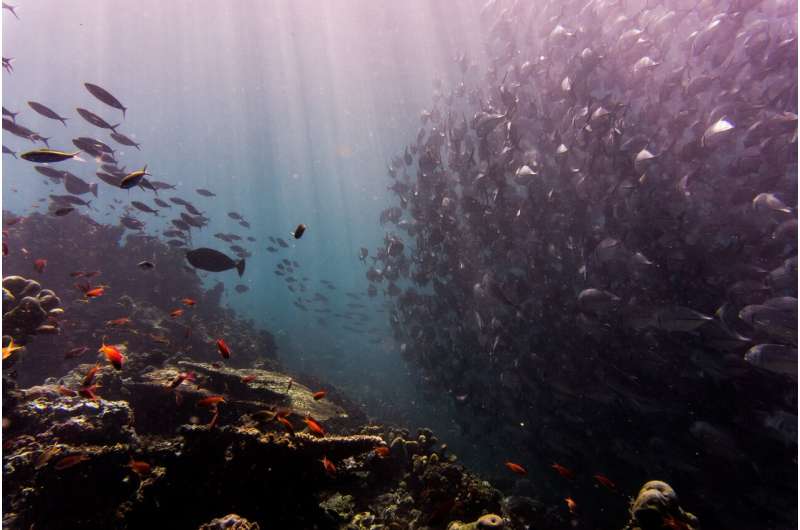This article has been reviewed according to Science X's editorial process and policies. Editors have highlighted the following attributes while ensuring the content's credibility:
fact-checked
peer-reviewed publication
trusted source
proofread
Researchers sound out Canadian military's plan to combat ocean noise pollution

A new study from Simon Fraser University researchers examines the Canadian military's efforts to reduce the impacts of underwater noise pollution on species during training exercises in the Pacific Ocean but caveat that more can still be done.
The paper, published today in Marine Policy, takes aim at a report commissioned by the Canadian Department of National Defence (DND) to reduce the effects of noise pollution from military small-arms munitions training within "Whiskey Hotel", a 330-square-kilometer area in the Strait of Juan de Fuca off the British Columbia coast.
The military commissioned the report after it committed to pausing exercises in the area for three years to examine the risk in-air and underwater training noises pose to marine mammals, such as the endangered Southern Resident Killer Whales.
With the report complete, the military has indicated it plans to resume training activities in Whiskey Hotel and will implement measures to reduce the impact of noise pollution, such as mitigation avoidance zones, cease-fire procedures, and marine species awareness training.
While researchers acknowledge the report and the mitigation measures as a positive step forward, the SFU-led paper analyzing the original report found several limitations.
For example, the report only looked at the noise pollution created by small arms fire and didn't consider the significant noise created by the military vessels themselves. The report also focused on marine mammals and didn't take into account the impact noise pollution also has on local populations of fish, such as salmon, and invertebrates in the area.
Researchers say more can be done in the future to protect fish and invertebrates from noise pollution, especially as the federal government continues to develop a national plan to manage and mitigate the impacts of underwater vessel noise on marine species and their ecosystems.
"It's important to be clear: this report is a step in the right direction. The government is developing an ocean noise strategy, so legislation on this topic is currently lacking, and activities that pertain to national security will be largely exempt from regulations. Commissioning an investigation and implementing mitigation measures is a conservation success story, one that I'm keen to see this improved upon and used in the future," says SFU biological sciences postdoctoral fellow Kieran Cox, the lead author of the study.
"I am hopeful that this framework can be adapted to consider all marine life and sources of noise pollution noise, which is needed as we move towards an Ocean Noise Strategy that can inform the coming decades."
More information: Kieran D. Cox et al, Military training in the Canadian Pacific: Taking aim at critical habitat or sufficient mitigation of noise pollution impacts?, Marine Policy (2023). DOI: 10.1016/j.marpol.2023.105945
Journal information: Marine Policy
Provided by Simon Fraser University





















